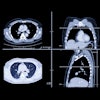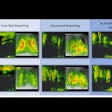
Radiologists who work as AI vendors can bring clinical expertise for improved product development to meet the needs of radiology professionals, according to a report published July 19 in the Journal of the American College of Radiology.
A team led by Steven Rothenberg from the University of Alabama at Birmingham and former co-founder of EnvoyAI outlined several areas of opportunity for radiologists as vendors but also noted that such vendors should be aware of potential conflicts of interest.
"Radiologists must prioritize patient care and ensure their work as vendors do not compromise their professional obligations," Rothenberg and colleagues wrote.
AI continues its advancement into everyday medical workflows, including in those faced by radiologists. While much research has explored the technology's potential in the clinical setting, on the other side are the vendors who provide these goods and services.
The authors wrote that it's necessary to have a comprehensive understanding of the clinical domain for successful navigation of the challenges vendors face -- such as regulatory compliance, sales, installation, and billing. That's where radiologists come in, guiding companies to ensure that AI products meet the needs of radiologists in the clinical setting.
So what does this look like in practice? The Rothenberg team listed several roles radiologists can play when working as AI vendors.
- Scientific collaborator. Radiologists (typically academic researchers) can work with industry partners to develop and evaluate new imaging technologies and techniques. They can also lead research on the efficacy of AI products and may work with vendors on grant funding and sponsored speaking events.
- Medical advisor. Radiologists can serve as advisors to AI companies.
- Inventor. Radiologists can license technologies they create to vendors, supporting technology transfer to protect intellectual property and working on licensing deals.
- Startup founder. Whether it be independently or with small teams, radiologists can venture on their own to open their own businesses.
- Employee. If founding a startup isn't in the cards, radiologists can join established companies. This allows for access to greater resources, an established customer base, and a diverse range of internal talent and expertise, Rothenburg and colleagues wrote.
Of course, radiologists who become AI vendors have their share of challenges to tackle, Rothenberg and colleagues wrote. One challenge is that a radiologist's judgment could be clouded by commercial interests -- prompting them to push AI products that may not be in radiology's best interests -- or conflicts of interest in product testing. Radiologists with a financial interest in an AI product should recuse themselves from decision-making regarding purchasing, the group noted.
Additionally, radiologists who work as vendors may find it harder to maintain their clinical practice.
"Practicing radiologists must ensure that their work within the industry complies with their practice policies and legal and regulatory requirements and does not compromise their professional obligations," they urged.
The full report can be found here.




















